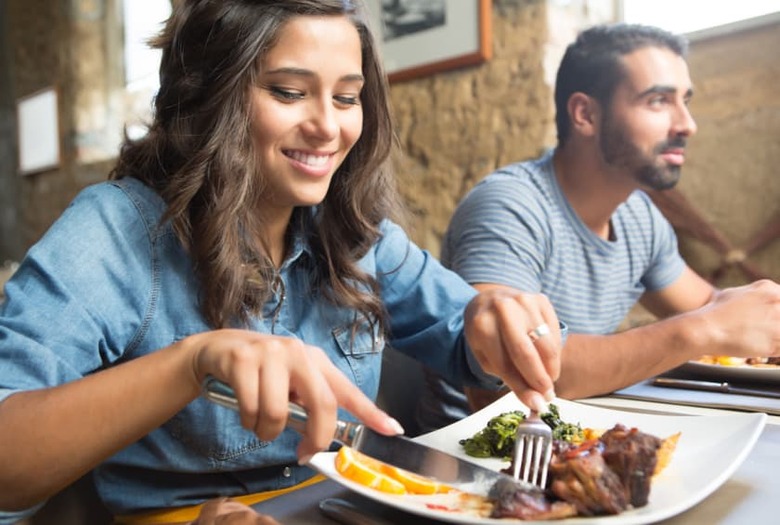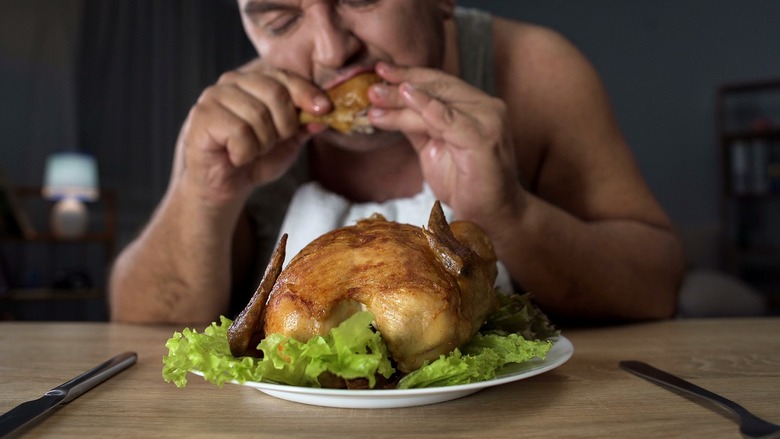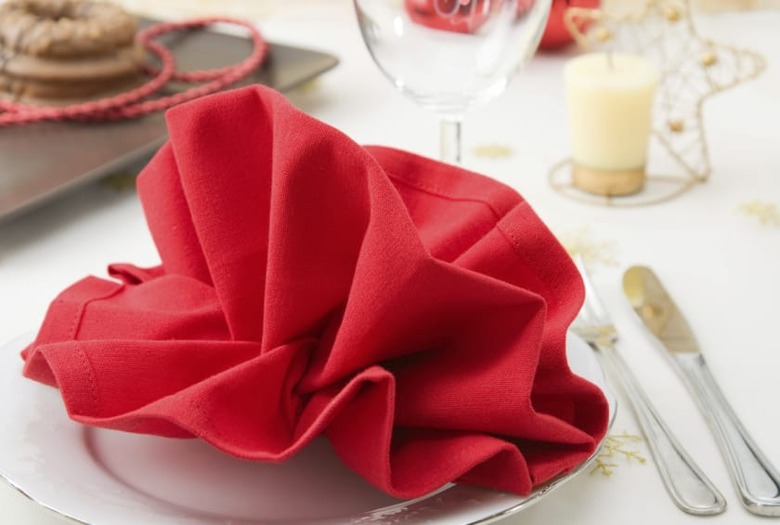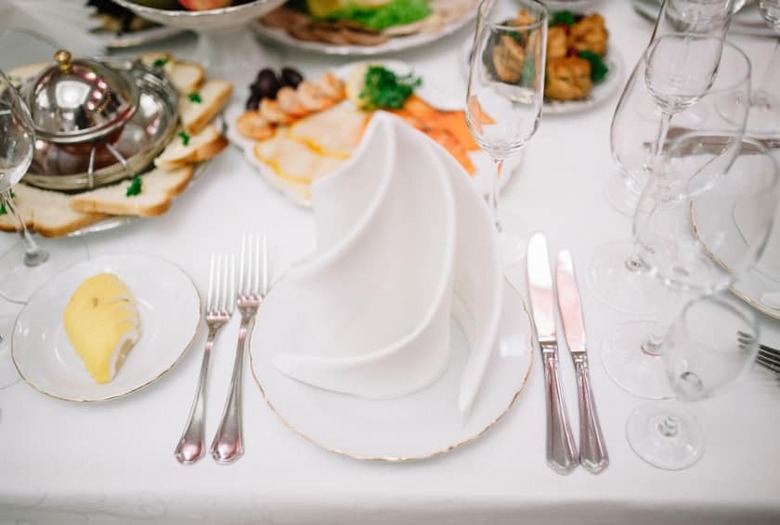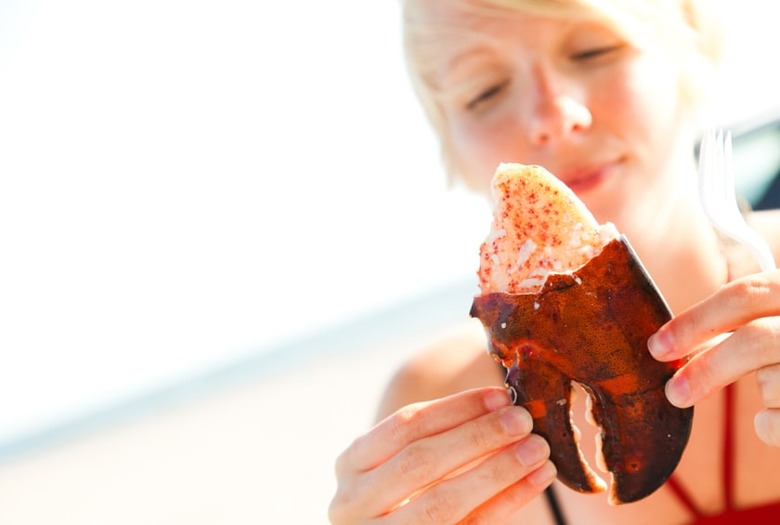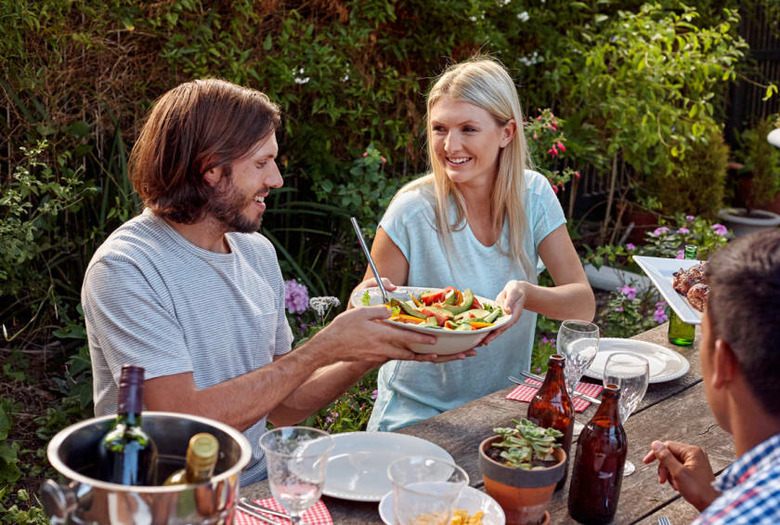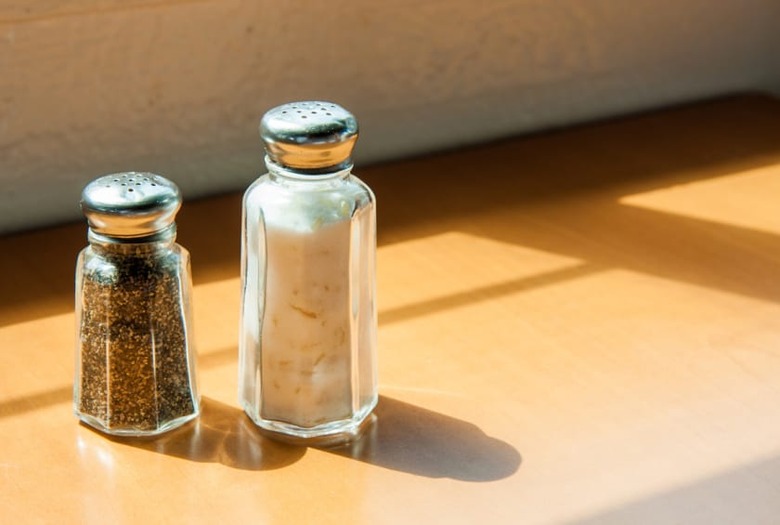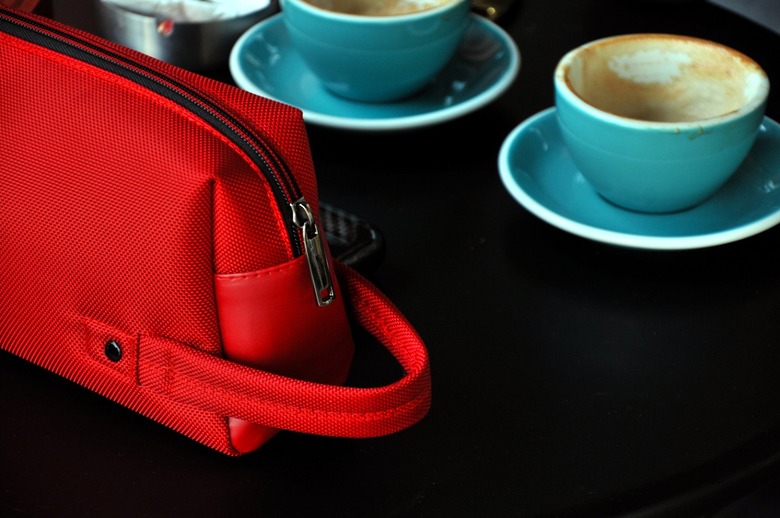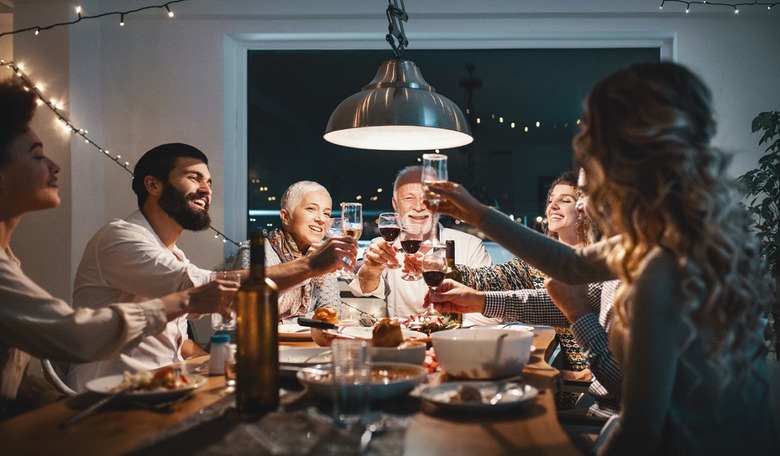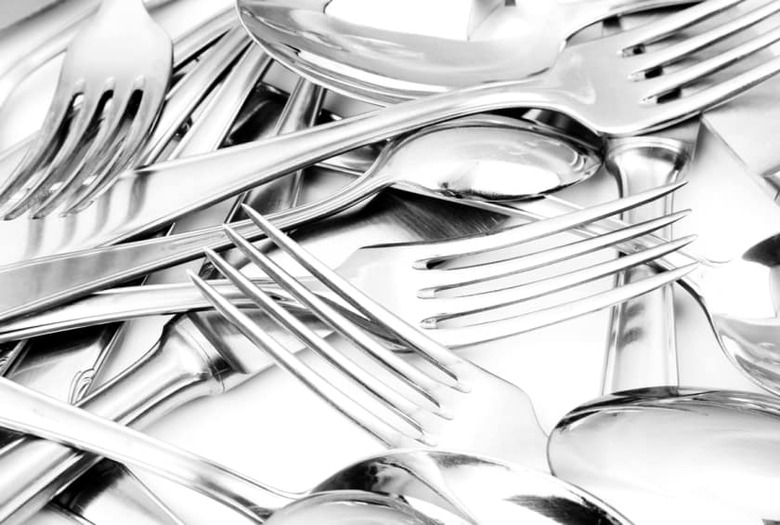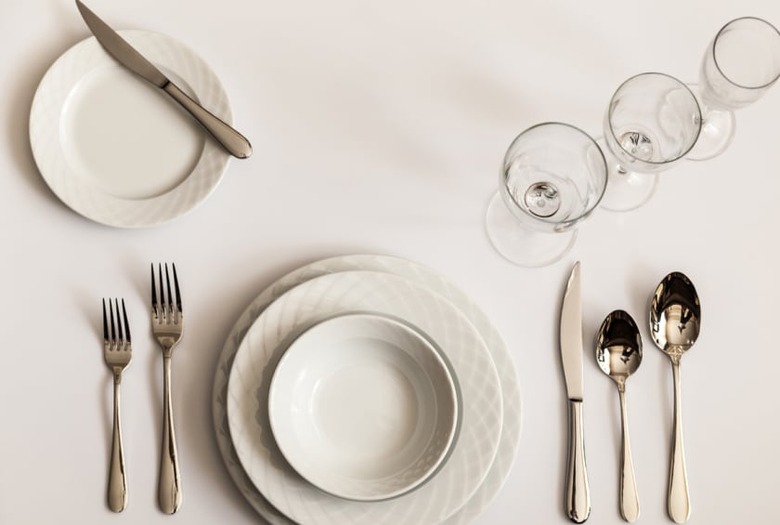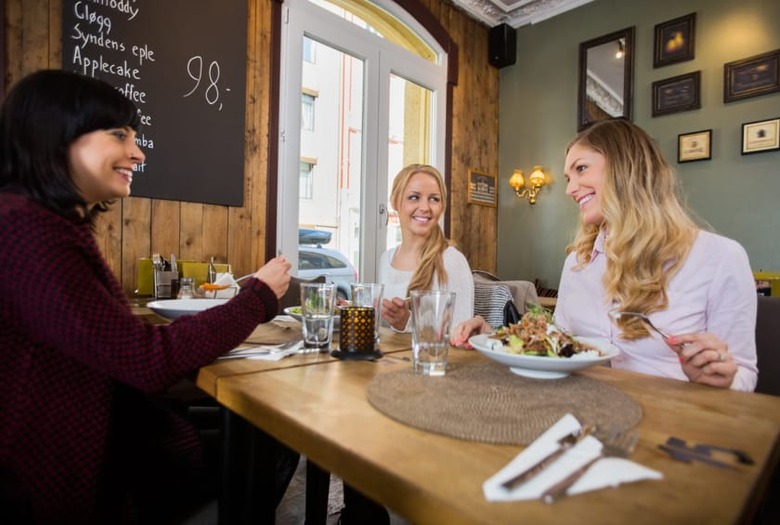21 Most Common Table Etiquette Mistakes Gallery
Mealtime isn't the big event that it once was. Formal dinners are an ancient relic, and even the simple family breakfast or dinner is a rare occurrence in many households. These days, people spend so much time eating alone, sharing a pizza and fries, eating in front of the television, or grabbing a muffin and heading out the door that manners are not taken into consideration.
Have you ever spent the first several minutes of a dinner looking from place setting to place setting, trying to figure out which wine glass is yours? Have you ever just passed the salt and gotten a glare from your grandma? You're not alone: The most common table etiquette mistakes are often the most simple, and it really is about time you fixed the errors of your ways.
We're not here to judge! Everyone gets excited and forgets to put their fork down when talking from time to time. And who hasn't, in a moment of hunger, reached for a bread roll or a gravy boat that is just a little too far away? But these small, common mistakes are easy enough to fix. But before you can clean up your act, you need to know which of these 21 etiquette flubs you're committing.
Eating Before Everyone Has Been Served
We get it. You're hungry, and that eggs Benedict on your plate is tempting you to start eating right away. But do not start until everyone else has been served and is seated, no matter how worried you are about your food getting cold.
Eating With Your Hands
What you can and can't eat with your hands is a complex maze of awkward mistakes and confusing rules. In general, it's best to not use your fingers and to stick with the knife and fork. There are exceptions to this rule, of course. Pizza, crispy bacon, corn on the cob, French fries, fried chicken, sandwiches, tacos, and other wraps where fillings may fall out can (and should) be eaten with your hands.
Leaving Your Napkin on the Table
For such a simple item, napkins present an unreasonable number of complications. So be sure to know your napkin etiquette. A few quick tips: Your napkin is the one on your left, be sure to put your napkin on your lap as soon as everyone is seated, and know if you need to get up in the midst of the meal to go to the bathroom that you should leave your napkin on your chair.
Licking Your Fingers
Barbecue sauce is delicious, we get it. But if you've been eating with your fingers, or somehow got some food on your fingers, resist the temptation to lick them clean. You've been given a napkin for a reason.
Not Knowing Which Bread or Water Glass Is Yours
It's easy to get confused in more formal dining situations, when there are all sorts of knives, forks, plates, and glasses at your place setting. Need to know what bread and drink glass is yours? There's a little "b" and "d" trick with your hands if you need a quick prompt. Make "OK" signs with each hand. You can easily remember the bread on the left is yours (the "b") and the drink glasses on the right belong to you (the "d").
Not Lifting Your Glass
No glass is so heavy that you simply cannot lift it from the table. Don't lean your body over a table to sip from a straw while your glass is still sitting on the table, and be sure to keep your elbows off the table and completely lift your wine glass to your lips.
Ordering Shellfish Without Knowing How to Eat It
If you're not a regular seafood eater who knows how to truly crack open a lobster, crab, or crawfish, avoid ordering this at a restaurant if you can, even at the most casual seafood shack. If you're served it, copy the others around you, or ask your expert neighbor for help. Otherwise, you risk sending a crab's leg flying toward the guest sitting across the table from you.
Passing Food Any Which Way
Food always gets passed to the right. Don't mess up the system and start passing the dish you're holding the other way; it'll throw everything off. Knowing this is a basic life skill.
Passing Salt and Pepper Separately
If someone asks you to pass the salt, make sure you pass the pepper too. These two condiments are a very happily married couple and do not want to be separated. Ever.
Putting Your Elbows on the Table
Elbows should never rest on the table. There's a simple, practical reason to explain this one: If you're leaning forward with your arms on the table, not only will you definitely be slouching, but you'll also almost certainly be blocking the conversation from flowing around you. With your body leaning forward over the table as you rest your arms on it, you'll be interrupting other guests, even if you don't realize you're being rude.
Seasoning Before Tasting
You never know how a host or chef has seasoned their food, and it's impolite to assume that it's not seasoned correctly. If you salt your potatoes before eating, you also run the risk of over-seasoning them and putting your blood pressure through the roof.
Setting Your Belongings on the Table
You travel with a lot of stuff. We get it. You have a purse, a cell phone, keys, and other random items at almost all times. But placing these items on your table — especially a phone — makes your fellow diners feel unimportant. Keep your phone in your pocket and the rest of your belongings tucked away.
Slurping Soup
Nothing beats an amazing bowl of soup, but it's a really difficult food to eat politely. There a few simple rules you can follow to make the task of elegantly eating soup a little easier. Rule No. 1: Don't slurp. If your soup is piping hot, blow on the spoon gently before eating it, and swallow silently. Don't blow on the whole bowl. Lift the spoon to your mouth, don't move your mouth to your spoon. And when you get to the bottom of the bowl, tilt the bowl away from you and move spoon towards the lower edge of the bowl to scoop up the last drop.
Talking Without Consideration of Your Situation
Even though you do it every day, knowing how to properly engage in a conversation — especially with strangers — is an art form. Not everyone knows how to make dinner party small talk like a pro, after all! But a few quick tips: Don't talk about exclusively yourself, ask your fellow diners questions, and listen. A good conversation will flow organically.
Talking With Your Fork in Hand
It may seem pointless to put your knife and fork down when all you're about to do is dive back in for another mouthful, but it's impolite to keep hold of your silverware while you're chewing and talking. If you get a little animated, it could look like your trying to stab your dining partner! Put them down on your plate to rest while you eat and chat.
Talking With Your Mouth Full
Some people don't care for seafood, but no one cares for seeing your food. Everyone is taught not to speak with one's mouth full from a young age, and it's something that should never be forgotten. Even if someone has asked you a question and you're desperate to answer but you've got your mouth full, finish what you're eating before you reply. If you don't, and you instead shower your fellow diner with crumbs, you can be sure that they won't be asking you any more questions for the rest of the evening.
Texting or Taking Calls at the Table
We know that you're very busy and important, and the world is depending on your speedy response to that email, text, or phone call, but please put your phone away. If you do desperately need to make a phone call or send a text, excuse yourself from the table and step away, but never for longer than a couple of minutes.
Reaching for Something
That roast chicken is just within reaching distance, you know, if you just get off your chair a little and stretch your arms out. But don't try it. The other guests don't want your arms dangling above their food or knocking over a centerpiece. Wait until there's a convenient pause in conversation and politely ask someone to pass you whatever you need.
Using a Dropped Utensil
If you drop your fork on the floor, don't swiftly pick it up, proudly declaring that the five-second rule applies. You should reach down and retrieve it, but don't carry on using it. If nothing else, the five-second rule is a myth; your utensil is filthy the second it hits the ground.
Using the Wrong Flatware
If you take your place at a table and immediately start panicking because you're surrounded by knives, forks, and spoons of all shapes and sizes, you just need to remember one simple trick: Work from the outside in. Start your meal with the smallest knife and fork, which will be furthest from your plate, and work your way in as each course goes by.
Zipping Through a Meal
Even if you were absolutely ravenous when dinner started and you politely waited until everyone had been served before you started, don't wolf down your meal as if you haven't seen food for days. You should never be the first to finish, even if that means dramatically slowing down as you get close to finishing your meal. Following this tip is an easy way to be more polite.
More From The Daily Meal:
The 20 Rudest Things You Can Do in a Restaurant
15 Nice Things You Need to Say More Often
11 Tips for Making a Great Impression on a First Date
15 Ways You Didn't Know You Were Being a Terrible Party Guest

